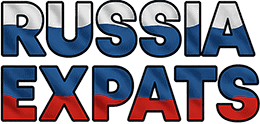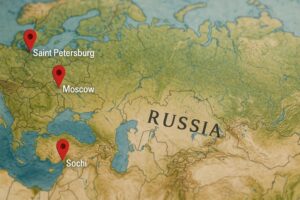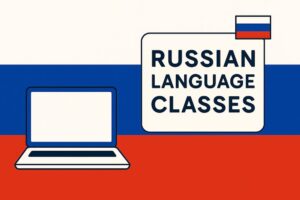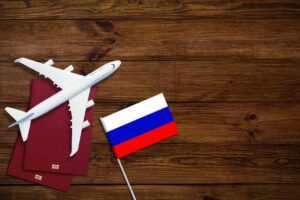Finding a job in Russia without fluency in Russian can be challenging, but it is possible with the right approach. Certain industries and international companies often seek English speakers, creating opportunities for non-Russian speakers. To navigate this market effectively, understanding local employment conditions, workplace culture, and strategic job search methods is key.
English speakers should focus on roles where English is valued, such as positions in multinational corporations, IT, education, tourism, and translation. Attending networking events can help build valuable connections, bridge cultural gaps, and reveal freelance or contract work opportunities. Embracing cultural integration enhances adaptability and helps create a positive impression in the workplace.
Additionally, exploring remote work options expands job possibilities beyond geographic limitations, offering flexibility and independence. Combining these strategies allows job seekers to access diverse roles in Russia despite language barriers, while supporting professional growth.
Success in the Russian job market without Russian fluency requires strategic planning, cultural awareness, and resilience. Understanding local networking customs can open doors that might otherwise remain closed. Balancing work priorities with adapting to a new environment demands flexibility.
This guide aims to provide a practical framework for those pursuing careers in Russia without Russian language skills. It highlights methods that respect cultural nuances while empowering individuals to thrive and maintain freedom in their career choices.
Challenges and Opportunities for Foreigners in the Russian Job Market
Foreigners looking to work in Russia encounter a distinctive mix of challenges and opportunities influenced by language barriers, cultural differences, and economic conditions. Mastering the Russian language is often essential, as many employers require proficiency for effective communication. Additionally, understanding local workplace customs and business etiquette can significantly impact integration and career growth. On the economic side, Russia’s evolving industries offer various prospects, especially in sectors like IT, engineering, and energy. However, navigating visa regulations and work permits adds complexity to the job search. Awareness of these factors is key to effectively entering and thriving in the Russian employment landscape.
Challenges
- Language Barrier
Russian remains the dominant language in most workplaces. While some multinational companies use English, proficiency in Russian is often essential for effective communication, daily tasks, and integration into the team. Limited Russian skills can restrict access to many job opportunities, especially outside major cities and international firms. - Cultural Differences
Russian workplace culture tends to be more formal and hierarchical compared to many Western countries. Understanding local etiquette—such as addressing colleagues by their patronymic names, respecting authority, and adhering to indirect communication styles—is important for building strong professional relationships. - Work Permit and Visa Regulations
Obtaining a work permit in Russia can be complex and time-consuming. Foreigners typically require sponsorship from an employer, and the process involves navigating bureaucratic procedures that vary depending on the applicant’s nationality and job sector. - Recognition of Foreign Qualifications
Certain professions in Russia require state recognition or certification of foreign diplomas and qualifications. This can create additional hurdles for skilled professionals seeking employment in regulated fields such as medicine, engineering, or law.
Opportunities
- Demand for Specialized Skills
Russia’s economy has sectors with high demand for foreign expertise, particularly in IT, engineering, finance, and natural resources. Professionals with skills in data science, software development, project management, and international business are especially sought after. - Multinational Corporations and International Organizations
Many global companies operate in Russia’s major cities like Moscow and St. Petersburg. These organizations often use English as their working language and value employees with international experience, offering foreigners better chances of employment. - Growing Start-up Ecosystem
Russia has an emerging tech start-up scene where innovation and global connections are prized. Foreigners with entrepreneurial skills or experience in venture-funded companies can find niche roles or opportunities to launch their own ventures. - Networking and Expat Communities
Active expatriate communities in large cities provide valuable networks for job seekers. Participating in professional groups, industry events, and online forums can help foreigners gain insights into the market and connect with potential employers.
Strategies for Success
- Language Learning: Investing time in learning Russian—even basic conversational skills—can significantly improve job prospects and workplace integration.
- Cultural Adaptation: Demonstrating respect for local customs while confidently presenting one’s qualifications helps build trust.
- Flexibility: Being open to roles that offer a pathway to more senior positions or that might initially seem outside one’s preferred field can lead to long-term success.
- Proactive Communication: Clear and frequent communication with employers about expectations and capabilities fosters mutual understanding.
- Leveraging Global Expertise: Highlighting international experience and cross-cultural skills is a key differentiator in competitive sectors.
In summary, while foreigners face notable linguistic and cultural challenges when seeking jobs in Russia, those who adapt effectively and leverage their specialized skills have access to rewarding career opportunities. Balancing respect for local norms with assertive self-presentation is essential for building a successful professional life in Russia.
Understanding the Importance of the Job Market and Language Impact in Russia

Success in securing employment in Russia largely depends on a comprehensive understanding of the local job market dynamics combined with how language proficiency influences access to opportunities. The interplay between these factors determines how well candidates can position themselves and navigate professional environments.
Language Barriers and Cultural Nuances
Language proficiency, particularly in Russian, plays a crucial role in accessing job opportunities. Russian remains the primary language of business and communication in most sectors. Limited language skills can restrict candidates to roles in multinational companies or industries where English is widely accepted. However, understanding cultural norms, workplace etiquette, and communication styles is equally important for integration and long-term success. For example, Russian workplaces often value formal communication, hierarchical respect, and punctuality, which foreign workers must adapt to alongside mastering the language.
Employment Trends and Sector-Specific Opportunities
Employment trends in Russia show a growing demand in sectors that are more open to non-Russian speakers, especially where there are acute skill shortages. These include:
- Information Technology (IT): Russia has a robust IT sector, with many companies operating in English or using English as a corporate language. Skilled software engineers, developers, and data scientists are highly sought after.
- Engineering: Specialized engineering fields such as oil & gas, aerospace, and manufacturing often require expertise that is scarce locally.
- Finance and Banking: International financial institutions and investment firms operating in Russia frequently employ foreign specialists.
- Education: English language teachers and academic professionals are in demand across universities and private institutions.
- Multinational Corporations: Many global companies with branches in Russia use English internally, creating opportunities for foreign employees.
These sectors tend to prioritize skills and experience over fluent Russian, though some level of language proficiency is often beneficial.
Understanding the Russian Job Market
The Russian job market is shaped by several factors that job seekers must understand to navigate it effectively:
- Economic Sectors: Russia’s economy is diverse but heavily influenced by natural resources like oil and gas. Other significant sectors include manufacturing, agriculture, finance, technology, and services. Regional differences are pronounced; for example, Moscow and St. Petersburg have more vibrant job markets with higher salaries compared to other regions.
- Regional Variation: Economic activity and labor demand vary widely across Russia’s vast geography. Major cities offer more opportunities and better pay, while rural areas may have limited prospects.
- Labor Demand Trends: The market is evolving with increased digitalization and modernization efforts. There is a growing need for professionals in IT, engineering, healthcare, and education.
- Cultural Impact: Russian work culture values hierarchy, formality, and clear communication. Understanding these cultural traits helps foreign workers integrate smoothly.
- Salary Expectations: Salaries differ greatly by industry and location. For example, average wages in Moscow are significantly higher than in smaller cities or rural regions. Foreign workers should research salary benchmarks relevant to their field to set realistic expectations.
- Employment Regulations: Russian labor laws govern contracts, working hours, benefits, and employee rights. Foreign workers often require work permits or visas tied to specific employers. Understanding these legal frameworks is essential for securing lawful and stable employment.
Key Industries with Demand for Foreign Professionals
Several industries consistently show demand for foreign specialists due to skill shortages or the need for international expertise:
- Information Technology (IT): Russia’s IT sector is one of the fastest-growing industries. Companies seek developers, cybersecurity experts, project managers, and AI specialists. Many IT companies operate bilingually or primarily in English.
- Engineering: The oil & gas sector and heavy industry require engineers with advanced technical knowledge. Foreign engineers bring valuable expertise not always available locally.
- Finance: International banks and investment firms operating in Russia recruit finance professionals with global experience and language skills.
- Education: The demand for qualified English teachers and university lecturers remains strong as educational institutions broaden their international curricula.
- Research & Development: Scientific institutions sometimes seek foreign researchers in specialized fields like physics, chemistry, and medicine.
- Multinational Corporations (MNCs): MNCs often have corporate cultures that accommodate English speakers. These firms usually offer competitive salaries and international work environments.
Strategic Advantages for Job Seekers
Candidates who understand these factors can strategically position themselves by:
- Targeting industries open to foreign talent.
- Improving their Russian language skills to increase competitiveness.
- Learning about local workplace culture to enhance integration.
- Aligning salary expectations with local standards.
- Navigating visa and work permit requirements efficiently.
This approach maximizes employment prospects while respecting Russia’s professional norms and legal frameworks.
Differences Between Major Cities and Regions in Job Availability in Russia
Job availability for foreign professionals in Russia varies significantly across different cities and regions, reflecting the country’s vast size and diverse economic landscape. Understanding these regional differences is crucial for aligning career goals with the most suitable locations.
Moscow: The Economic and Financial Hub
Moscow stands as the epicenter of Russia’s job market, offering the widest range of opportunities across numerous sectors. As the capital and largest city, it hosts:
- Finance and Banking: Headquarters of major Russian banks, international financial institutions, and investment firms.
- Information Technology: A thriving tech ecosystem with startups, established IT companies, and multinational corporations.
- Multinational Corporations: Many global companies choose Moscow for their Russian operations, often providing roles requiring English proficiency.
- Consulting and Professional Services: High demand for specialists in management consulting, law, marketing, and business development.
The city’s cosmopolitan environment, higher salaries, and extensive networking opportunities attract both domestic and foreign talent. However, competition is fierce, and the cost of living is relatively high.
St. Petersburg: Culture and Technology Focus
St. Petersburg, Russia’s cultural capital, combines heritage industries with modern technology sectors:
- Culture and Tourism: Opportunities in museums, galleries, hospitality, and tourism-related businesses.
- Information Technology: Growing tech clusters with a focus on software development and innovation.
- Education and Research: Numerous universities and research institutions create demand for academic professionals.
- Creative Industries: Media, design, advertising, and architecture sectors offer niche roles.
While St. Petersburg offers a slightly less intense job market than Moscow, it remains attractive for foreign professionals interested in a balanced work-life environment amid rich cultural surroundings.
Volga Region: Industrial Growth Centers
The Volga region includes key industrial hubs such as Nizhny Novgorod, Kazan, and Samara. This area is known for:
- Manufacturing: Automotive, machinery production, and heavy industry.
- Engineering: Demand for mechanical, electrical, and industrial engineers.
- Aerospace and Defense: Specialized roles linked to Russia’s aerospace industry.
- Information Technology: Emerging IT sectors supporting industrial modernization.
Foreign professionals with technical expertise find opportunities here, particularly in engineering and project management. Salaries tend to be lower than in Moscow or St. Petersburg but are balanced by a lower cost of living.
Siberia: Natural Resources and Energy Focus
Siberia’s vast natural resources shape its employment landscape:
- Oil and Gas: Exploration, extraction, and processing roles requiring advanced technical skills.
- Mining: Demand for geologists, engineers, and environmental specialists.
- Energy Sector: Hydroelectric power projects and energy infrastructure development.
- Forestry and Agriculture: Specialized roles linked to raw material sourcing.
Due to harsh climatic conditions and geographic isolation, Siberian job markets often require professionals willing to relocate for specialized positions. Compensation packages may include bonuses or benefits to offset these challenges.
Other Regions: Diverse Opportunities Across Russia
Beyond these major areas, various other regions in Russia also offer meaningful opportunities for foreign professionals across different industries. These regions may emphasize sectors such as agriculture, manufacturing, regional services, and emerging technologies. Many smaller cities and regions are developing their economic bases with incentives aimed at attracting qualified specialists. This diversity ensures that foreign professionals can find a range of roles suited to their skills and career goals throughout the country.
Strategic Regional Considerations for Job Seekers
By recognizing these regional distinctions, foreign professionals can make informed decisions about where to focus their job search:
- Aligning Skills with Regional Demand: For example, IT specialists might prioritize Moscow or St. Petersburg; engineers may explore the Volga region; energy experts could focus on Siberia.
- Balancing Lifestyle and Salary Expectations: Larger cities offer higher pay but also higher living costs; smaller regions provide opportunities with potentially lower expenses but fewer amenities.
- Understanding Local Work Culture Variations: Although general Russian workplace norms apply nationwide, regional variations in business practices exist due to economic focus and cultural context.
Preparing Your Application Materials for Jobs in Russia Without Russian Fluency
Applying for jobs in Russia without fluency in the Russian language can be challenging but is entirely achievable with careful preparation of your application materials. Understanding the cultural expectations and the preferred formats used by Russian employers is essential.
Understanding Application Format and Cultural Nuances
In Russia, job applications typically follow specific formats influenced by local business culture. Resumes (or CVs) are often expected to be concise yet detailed, clearly organized, and presented in a formal style. Unlike some Western countries, where creative or highly stylized resumes can be acceptable, Russian employers generally prefer straightforward, professional documents.
Analyzing job descriptions carefully is crucial. Russian job postings tend to be precise about required skills and qualifications. Identifying keywords from these descriptions and integrating them into your CV and cover letter will improve your chances by demonstrating alignment with the employer’s needs.
Crafting Clear and Professional Documents Despite Language Barriers
Even if your application materials are written in English, it is critical to maintain clarity, professionalism, and conciseness. Avoid overly complex sentences or idiomatic expressions that may confuse non-native readers. Proofreading for grammar and spelling mistakes is even more important to ensure a polished impression.
A thoughtful and well-prepared application signals adaptability and commitment — qualities highly valued by Russian companies, especially those engaged in international business or seeking diverse talent. It demonstrates that you respect local business etiquette, which can significantly increase your chances of being shortlisted.
Tailoring Your CV and Cover Letter to Russian Employers’ Expectations
Successfully applying for jobs in Russia requires aligning your CV and cover letter with local conventions and employer preferences.
CV Formatting and Content
Russian employers expect CVs to have a clear structure, typically presented in reverse chronological order starting with the most recent experience. Personal details such as full name, date of birth, contact information, and sometimes even a photo are commonly included. While some Western countries discourage including photos, in Russia it remains a standard practice.
Your CV should emphasize relevant experience with detailed descriptions of previous roles, achievements, and responsibilities. Avoid vague statements; instead, quantify accomplishments whenever possible (e.g., “increased sales by 20% over six months”).
Language and Tone
Even if submitting documents in English, use formal language and avoid slang or casual phrasing. The tone should convey professionalism and respect. This approach aligns with the conservative communication style typical in Russian workplaces.
Cover Letter Structure and Style
The cover letter should be concise and well-structured, usually no longer than one page. It should open with a clear statement of purpose — specifying the position you apply for — followed by a brief summary of your qualifications relevant to the role. Closing remarks should express enthusiasm for the opportunity and willingness to discuss your candidacy further.
Employers appreciate a formal tone combined with personal sincerity. A cover letter that respects these conventions demonstrates cultural awareness and enhances your overall application.
Highlighting International Experience and Language Skills
In today’s globalized job market, particularly within Russia’s growing international business sectors, emphasizing your international experience is a strong advantage.
Showcasing Global Perspectives
International work or study experience reflects your ability to adapt to different cultural environments and work effectively across borders. It signals openness to new ideas and problem-solving approaches, traits that Russian employers increasingly value.
Language Skills as a Competitive Edge
While you may lack fluency in Russian, highlighting any language skills you possess—whether English, other European languages, or even basic Russian—can set you apart. Multilingualism suggests you can communicate across diverse teams and contribute to cross-cultural collaboration.
Transferable Skills
Focus on transferable skills gained abroad such as project management, negotiation, teamwork in multicultural settings, or technical expertise relevant to the role. These competencies emphasize your professional versatility beyond language abilities.
The Importance of a Formal, Well-Structured Cover Letter
The cover letter often serves as your first personal introduction to an employer and can be particularly important when applying without Russian fluency.
Professionalism Through Clear Structure
A formal cover letter with a clear introduction, body, and conclusion helps organize your message logically. This clarity improves readability for busy hiring managers who may be reviewing many applications.
Personal Branding and Addressing Language Gaps
Use the cover letter to highlight unique strengths, such as international experience or specific technical skills. You can also tactfully acknowledge language limitations by expressing your commitment to improving Russian proficiency or your ability to work effectively in English-speaking environments.
Bridging Communication Barriers
Well-articulated cover letters help overcome initial communication challenges by presenting you as thoughtful, motivated, and respectful of cultural differences. This approach increases your appeal to employers seeking diverse talent capable of contributing to international teams.
By carefully preparing application materials according to these guidelines, candidates without Russian fluency can confidently navigate the job market in Russia. Thoughtful adaptation of CVs and cover letters demonstrates respect for local customs while showcasing global competencies sought by employers.
Jobs accessible without Russian fluency
Opportunities in Multinational and IT Sectors
In Russia, many industries offer job opportunities for individuals who do not speak Russian fluently, particularly in multinational corporations, IT sectors, and specialized technical fields. The rise of remote work has further expanded possibilities, allowing professionals to freelance or work from home while living in Russia. Within this context, expatriate communities often become essential networks, providing job leads, advice, and social support that help non-Russian speakers navigate the local job market. Multinational companies frequently prioritize hiring English-speaking staff to facilitate smoother integration within their teams. Additionally, language exchange programs serve as informal platforms for cultural connection and language practice, indirectly improving career prospects even when immediate Russian fluency is not required. These combined pathways create a dynamic environment where non-Russian speakers can find meaningful employment while managing linguistic challenges in Russia’s evolving economy.
Benefits of Learning Russian
Although it is possible to secure employment without a high level of Russian proficiency, learning the language—even at a conversational level—offers significant benefits. Beyond simply improving communication skills, acquiring Russian can deepen cultural understanding, making daily interactions more enriching and authentic. Conversational abilities open doors to broader networking opportunities by enabling more natural engagement with colleagues, industry peers, and local communities. This access to personal connections often reveals job openings not advertised through formal channels, sometimes referred to as the “hidden job market.” Moreover, basic Russian skills enhance travel experiences within the country, allowing individuals to navigate more confidently and engage more meaningfully with local culture. Overall, even limited proficiency in Russian increases professional growth potential and adaptability, empowering individuals to thrive in Russia’s diverse social and business environments.
Strategies for Job Searching Without Russian Fluency
Successfully navigating the Russian job market requires a strategy tailored to its unique cultural and economic landscape. Using specialized job search tools and online platforms that focus on Russia can make the application process more efficient for those without Russian fluency. Targeting international companies with established branches in Russia often provides the best chances because these firms typically prioritize English-speaking employees and have more experience working with foreign candidates. Professional networking is also crucial—both through online platforms like LinkedIn and within expatriate communities—which helps uncover opportunities not always visible through standard job boards. Recruiting agencies familiar with placing foreign professionals can provide additional support by matching candidates to suitable roles and advising on local hiring practices. Combining these approaches helps applicants overcome linguistic and cultural barriers while increasing their chances of securing meaningful employment.
Reaching out directly to companies doing business in Russia is another effective strategy for job seekers who do not speak Russian fluently. Crafting well-considered email templates tailored to each company can improve communication clarity and professionalism, making a positive impression despite language limitations. Attending networking events offers chances to engage with industry professionals and learn about market trends. Utilizing local business directories helps identify potential employers open to international talent. Demonstrating cultural understanding during these interactions—such as familiarity with Russian business etiquette—signals respect and adaptability, traits highly valued by employers. By taking this proactive approach, candidates can bypass some language-related obstacles and foster meaningful conversations that increase the likelihood of finding roles aligned with their skills.
The Role of Networking and Entry-Level Opportunities
Networking and personal connections play a critical role in accessing job opportunities in Russia, often compensating for the lack of Russian fluency. Participating in professional associations and attending industry events expands one’s circle beyond formal job postings, reaching positions that may never be advertised publicly. Personal referrals carry significant weight in the Russian job market as they build trust and credibility more effectively than cold applications. Social media platforms also serve as valuable tools to increase visibility and connect with key contacts within target industries. A solid understanding of Russian cultural norms and business etiquette further strengthens these connections by showing respect toward local customs.
For many non-Russian speakers entering the Russian workforce, openness to internships, volunteer work, or entry-level positions provides a practical route for gaining experience and building professional networks. These roles are often less demanding in terms of language skills while offering opportunities to demonstrate commitment and develop relevant competencies in real-world settings. Internships and volunteering also provide environments for cultural immersion and adjustment, helping candidates adapt to workplace expectations and build relationships that can lead to future employment. Starting at entry level allows newcomers to gradually increase their confidence and understanding of industry-specific language and practices. By embracing these stepping stones, individuals enhance their employability and create pathways toward more advanced roles, supporting long-term career growth within Russia’s competitive labor market.
Legal Requirements and Work Permits in Russia
Work Permits and Visa Sponsorship
Foreigners seeking employment in Russia must navigate the legal requirements and obtain appropriate work permits. Usually, obtaining a work visa requires employer sponsorship, which involves submitting documents such as a valid employment contract and proof of company registration. Visa processing can take several weeks, so planning ahead is essential. Renewals also require timely coordination between employee and employer to maintain legal status. Consulting legal professionals familiar with Russian regulations helps ease this process, allowing foreign workers to focus on career growth despite language or administrative challenges.
Avoiding Illegal Employment
Working without proper authorization violates Russian labor laws and risks workers’ rights. Foreign employees must secure clear contracts outlining job duties, wages, and working hours. Understanding Russian labor laws helps identify exploitation or violations. Reporting illegal employment protects both individual workers and the broader foreign workforce. Staying informed about legal rights creates a foundation for lawful employment, safeguarding personal freedom and professional integrity.
Interview Etiquette and Process
Job interviews in Russia emphasize punctuality, formal greetings, and respectful body language, reflecting respect for hierarchy. Candidates should prepare for questions about teamwork, problem-solving, and adaptability. Balancing confidence with humility is important; being too assertive may be negatively perceived. Sending a thank-you note after the interview is good practice. Interviews often have multiple stages assessing technical skills and cultural fit, with feedback sometimes delayed. Understanding these formal procedures helps candidates succeed even without full Russian fluency.
Workplace Culture and Communication
Professional appearance, punctuality, and communication style are highly valued in Russian workplaces. Business attire is typically formal and strict dress codes are common. Punctuality signals reliability and commitment. Communication is generally direct but polite, prioritizing clarity over small talk. Adapting to these standards builds trust and facilitates collaboration. For non-Russian speakers, showing awareness of local etiquette demonstrates respect for customs and enhances workplace integration.
Navigating Russia’s Job Market Without Russian: Unlocking Opportunities with Strategy and Adaptability
While the lack of Russian fluency presents clear challenges in Russia’s job market, it does not close the door to meaningful career opportunities. By targeting sectors open to English speakers—such as IT, multinational corporations, finance, and education—and preparing culturally adapted, professional application materials, job seekers can effectively position themselves for success. Leveraging networking, embracing entry-level roles or internships, and demonstrating respect for local customs boost integration and open hidden doors.
Learning even basic Russian enhances communication and deepens connections but isn’t always mandatory to start building a rewarding career in Russia. Understanding legal requirements and workplace culture ensures a smooth transition into employment while safeguarding rights and professionalism.
Ultimately, success hinges on strategic planning, cultural awareness, persistence, and flexibility. With these tools, non-Russian speakers can thrive in Russia’s evolving economic landscape—turning language barriers into bridges for growth and opportunity.







